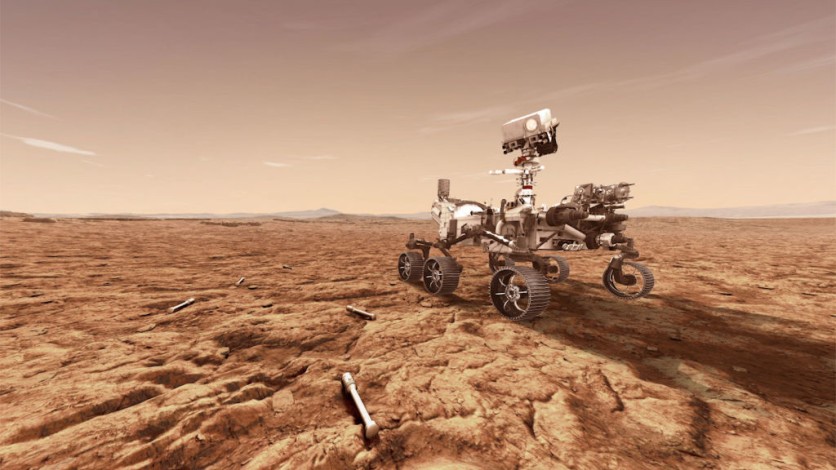Perseverance's first 208 Martian days of data collection have yielded a treasure trove of information about the Jezero Crater, the site of the NASA rover's February 2021 landing.
According to the most recent research, the crater was once thought to be a lake that had dried up. Additionally, the study reveals that there were several organic materials in these waters.

Signs of Water
Teams using Perseverance have reported finding igneous rocks in the Jezero Crater floor in several papers. These were created from magma as a result of asteroid strikes or volcanism, they also show signs of having been exposed to water countless times.
"It looks like Jezero Crater is indeed what we suspected based on orbital imaging. It used to be a lake about three/three and a half billion years ago. And that's really exciting for us, obviously, because liquid water on Mars 3 billion years ago, was around the same time that life evolved on Earth," co-lead author Dr. Joseph Razzell Hollis said in a statement with IFLScience.
The researchers said that they could potentially be building blocks of life on the Red Planet but they will still investigate these samples thoroughly to confirm.
Read Also : 'Good Bye Oppy' Documentary Hitting Amazon Prime Video Soon, A Look to NASA's Mars Rover
Mars Sample Return Mission
The Mars Sample Return mission will then gather the tubes and return them to Earth for detailed analysis, which is not possible on Mars. The investigation on Earth will make it possible to determine the molecules' origin and whether or not they might represent proof of life.
Another intriguing finding is the presence of organic molecules at the bottom of Jezero Crater, specifically in igneous rocks. Similar chemicals were discovered by Curiosity in Gale Crater's sedimentary rocks.
It is quite likely that these organic compounds were prevalent given the discovery of organic materials in two very different settings on Mars, according to IFLScience.
Perseverance has been investigating a river delta that is thought to have formerly transported water and sediments into Jezero Crater for the last few months.
This is a crucial location for the discovery of organic material, according to researchers. The current study might be even more ground-breaking since the crater has always been abundant in these compounds.
The paper's findings were published by Sheller and Hollis in Science.
Related Article : Ancient Sleeping Bacteria from Mars Survived for 280M Years-Will it Contaminate the Earth?
This article is owned by Tech Times
Written by Jace Dela Cruz
ⓒ 2025 TECHTIMES.com All rights reserved. Do not reproduce without permission.




